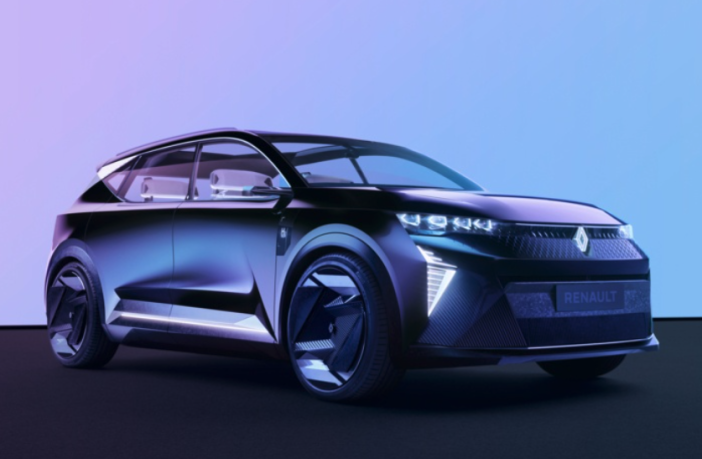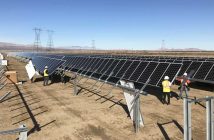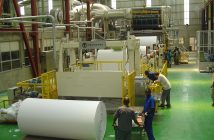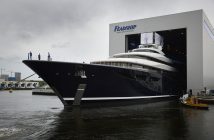- Renault is writing a new chapter in its history with an innovative concept-car that is both pioneering and visionary.
- From the outside, it foreshadows the future 100% electric family vehicle in the Renault range.
- Inside and technologically, it invites you to travel into another time, into a future where technologies and innovations will serve a more sustainable and environmentally friendly world.
“All our corporate commitments are not enough if we are not taking them all the way down to our vehicles. That’s why I requested the Renault teams to come up with the 1st concept-car that fully embodies our new ESG strategy and its 3 pillars: environment, safety, and inclusion. We called it Scénic Vision. Scénic, like our iconic “voiture à vivre”, and Vision because it fits people’s new expectations.” said Luca de Meo, CEO Renault Group and Renault brand.
Scénic Vision sets a new path for more sustainable, safe and inclusive mobility. Visionary and exploratory, it embodies the most advanced technological prospects for decarbonization and embodies the three pillars of Renault Group’s sustainable development strategy: environment, safety and inclusion.
- Eco-design and circular economy innovations, incorporating over 70% recycled materials, including several closed loops, and 95% recyclable, contribute directly to resource conservation.
- Its 160kW hybrid electric and hydrogen powertrain, aims to reduce downtime related to energy recharging while reducing the carbon footprint, including the battery. Renault Scénic Vision is zero emission in production and in use with a 75% smaller carbon footprint than a conventional battery electric vehicle.
- Onboard technologies offer enhanced safety for drivers and passengers, reducing the number of accidents by up to 70%. The design of this concept-car also reflects the teams’ desire to create a unique car that is accessible and suitable for everyone.
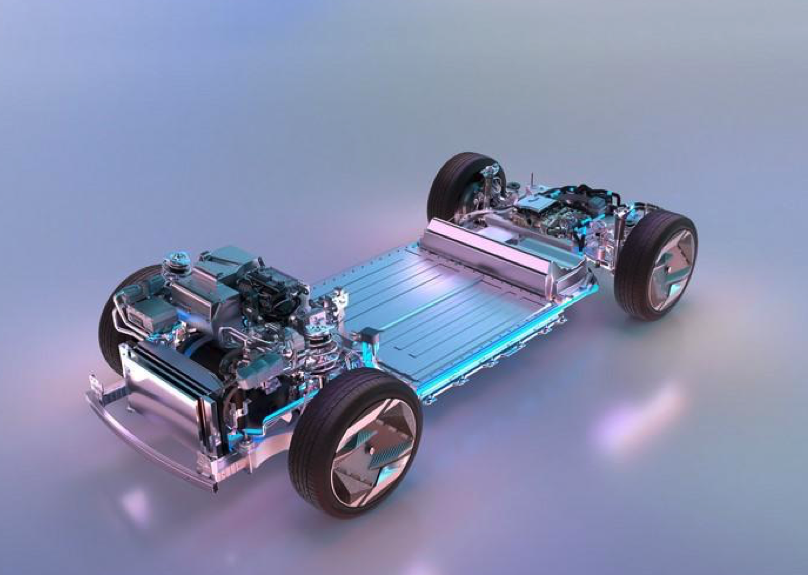
Renault Scenic Vision’s 160 kW electrically excited synchronous motor derives directly from All-new Renault Megane E-TECH Electric’s motor and is made at the plant in Cléon
The best from electricity and hydrogen
H2-Tech technology: a hybrid vehicle, both electric and hydrogen, equipped with a 16kW fuel cell. The H2-Tech technology is based on the “range extender” technology, which makes it possible to carry a battery that is twice as light, for the same range, thus contributing to decarbonization beyond the electrification of the vehicle. Although this solution is a vision for a passenger car, Renault Group through Hyvia (joint venture with Plug Power) already offers H2 solutions on LCVs.
In 2030 and beyond, once the network of hydrogen stations is large enough, you will be able to drive up to 800 km – or, for instance, 750 km from Paris to Marseille – without stopping to charge the battery. You will only have to stop for 5 minutes or less to fill the hydrogen tank.
Following on from the partnerships already entered into, this vehicle has a carbon footprint that is 75% smaller than that of an electric vehicle such as the Megane E-Tech electric. Its battery is up to 60% less carbon intensive than an equivalent battery, thanks to the use of short loops and low-carbon sourcing of minerals, and the use of low-carbon energy to assemble and produce the battery.
Technical specs
- Length: 4,490 mm
- Width: 1,900 mm
- Height: 1,590 mm
- Wheelbase: 2,835 mm
- Rims: 21 inches
- Tires: 235/45 R21
- Weight: 1,700 kg
- Energy: hybrid electric-hydrogen
- Engine: 160 kW electrically excited synchronous motor
- Fuel cell: 16 kW
- Battery: 40 kWh
Author: Bryan Groenendaal








